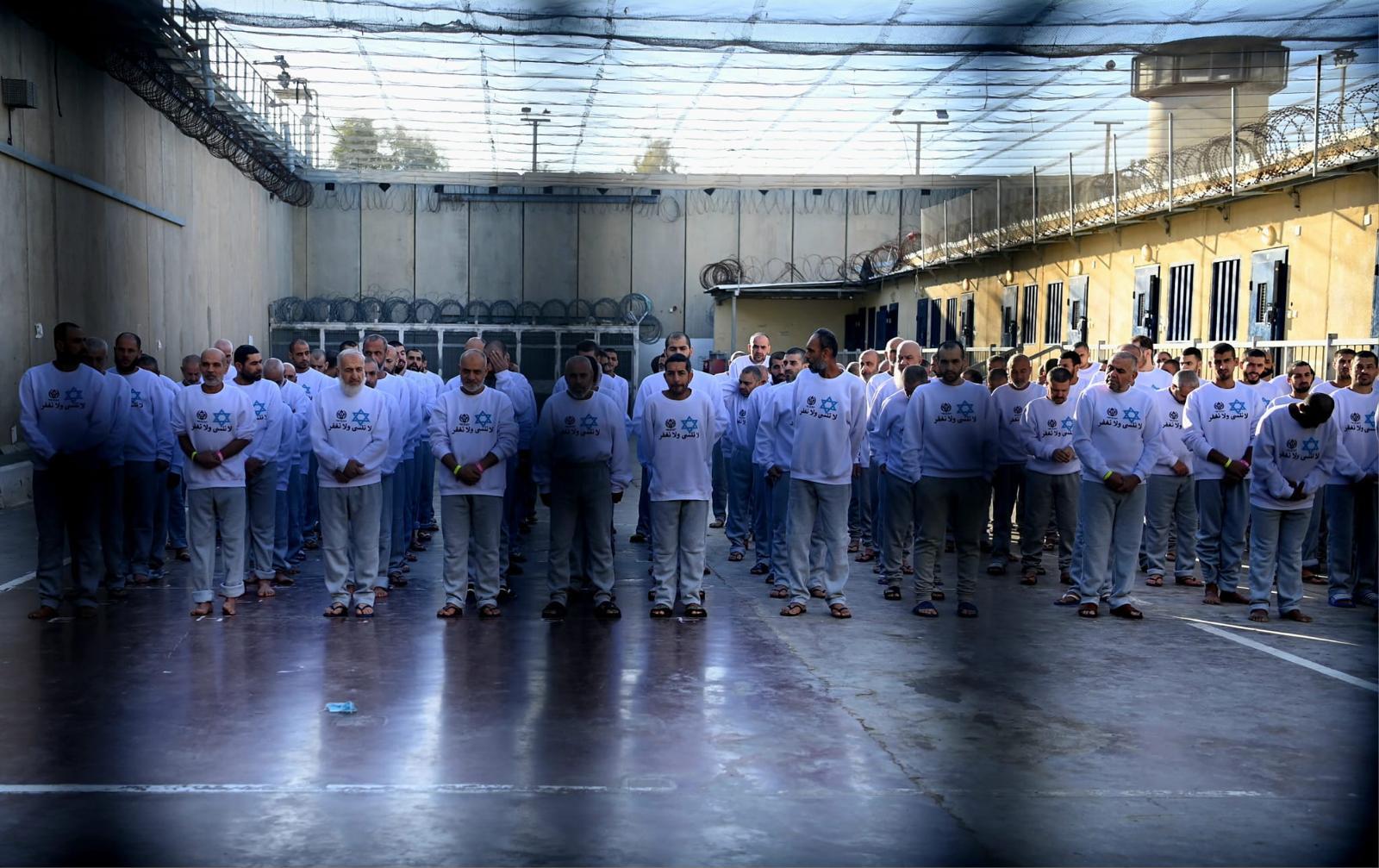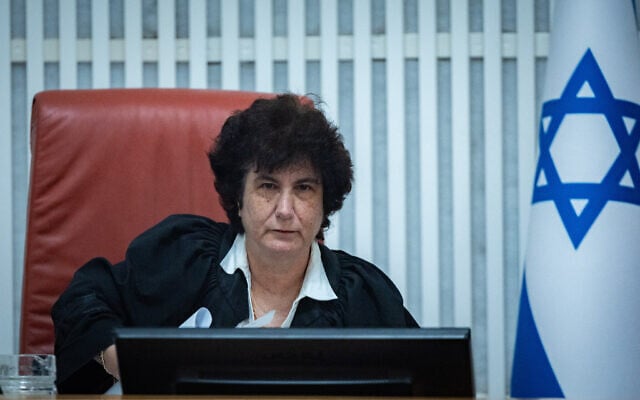


The High Court of Justice ruled on Sunday that the state has failed to fulfill its legal obligations to adequately feed Palestinian security prisoners, and ordered it to take steps to provide such prisoners with enough food “to enable a basic existence.�
The two-to-one vote was seen as a clear rebuke of far-right National Security Minister Itamar Ben Gvir, who has pushed for harsh, punitive conditions for the inmates.
Writing for the majority, Judge Daphne Barak Erez said that the information provided by petitioners against the current nutrition regime and by the Israel Prison Service (IPS) itself “raised real doubts� about the nutrition being supplied to security prisoners, and that there were “indications� that the food provided was not sufficient.
The decision came in response to petitions filed by the Association for Civil Rights in Israel and Gisha organizations in April last year against Ben Gvir and the IPS, who they accused of deliberately reducing prisoner rations below the level of subsistence, and essentially of starving Palestinian security prisoners.
Judge David Mintz dissented from the majority opinion and wrote that he was satisfied with the answers provided by the National Security Ministry and the IPS that the nutritional program itself, as well as its implementation on the ground, were sufficient to fulfill the state’s legal obligations towards the prisoners.
Ben Gvir, who as national security minister has authority over the IPS and has stated publicly that he ordered a reduction in the quality of rations, denounced the court’s decision, claiming the court was “defending terrorists� while Israeli hostages languished in Gaza without such protection.
Barak-Erez anticipated these claims in her written opinion, asserting that “It must be remembered that the painful testimonies of freed [Israeli] hostages show that a stricter food regime [for Palestinian prisoners] does not improve the suffering of our kidnapped brothers who are still in distress and captivity, and even the opposite,� wrote Barak Erez.
She also pointed out that all security prisoners, including Israeli citizens, were subject to Ben Gvir’s problematic policies, and that these included prisoners who were not involved in the October 7 atrocities and the fighting in Gaza.
And the judge insisted that the provision of food could not be used “as a means of punishment,� and that considerations other than the nutritional needs of prisoners were not legitimate.
The petitions filed in April 2024 alleged that prisoners released from Israeli jails had testified that they suffered from “constant and extreme hunger and very poor quality of food,� and had “lost tens of kilograms in weight in recent months.�
And numerous testimonies provided in sworn affidavits by Palestinian prisoners to lawyers for the Hamoked human rights organization and seen by The Times of Israel reported severely insufficient rations, often including only a few slices of bread every meal along with a sweet jam-like spread or chocolate spread. 

Several of those prisoners reported losing more than 20 kilograms in the course of a year in prison.
Ben Gvir has publicly acknowledged, and taken pride, in having reduced the quality of rations for Palestinian prisoners since the outbreak of war with Hamas in Gaza, following the October 7 atrocities, albeit claiming that the new rations still met minimum legal requirements.
The state claimed in response to petitions that the menu approved by the IPS for security prisoners included 2300 calories a day, had been approved by the chief IPS health official, and had been updated in the wake of the petitions to the court and subsequent requests by the High Court to the IPS for information on the matter.
ACRI and Gisha told the court, however, that Palestinian prisoners had continued to complain of starvation and losing weight.
“The State of Israel is a state of law,� wrote Barak-Erez, adding that providing adequate nutrition to prisoners is “the A, B, C of the rule of law.�
She said that the picture painted in court gave “indications that the current food supply to prisoners does not sufficiently guarantee compliance with the legal standard in practice.�
And the judge wrote that even if the nutritional program for prisoners met legal standards in theory, the state was obligated to ensure that it was implemented on the ground, meaning that prisoners actually receive the rations allocated to them.
Barak-Erez rejected claims by the IPS that it was sufficiently tracking the effect of the new rations on security prisoners, saying it had failed to conduct regular checks to compare the ongoing nutritional status of prisoners to their status upon entering an Israeli prison.
“It was not made clear what guarantees are in place to ensure that the provision of food is actually carried out in a manner that ensures the actual implementation of the food menus,� wrote the judge.
“The information presented to us raised real doubts regarding the actual nutritional status of the security prisoners, and not only in exceptional cases,� she continued, adding that the material submitted both by petitioners and the IPS, including classified documents, undermined the presumption of reliability usually afforded to the state.

Mintz dissented from Barak-Erez’s opinion, writing that the IPS had said that it ensures the allocated rations in the right quantities are issued to all prisoners, and that the IPS conducts daily checks to ensure that the rations supplied are nutritionally sufficient.
“I am not convinced that the respondents are not taking steps to ensure the provision of food in accordance with the law, as stated in the conditional order issued,� wrote Mintz.
ACRI welcomed the court’s decision, with the organization’s director, Noa Sattath, describing it as a “crucial victory for the rule of law and human dignity,â€� which “unequivocally rejected Minister Ben Gvir’s systematic starvation policy.â€�
Ben Gvir denounced the High Court’s ruling against his prison ration policies, questioning whether the judges are “of Israel.�
“Our hostages in Gaza have no High Court to defend them. The murderous Nukhba terrorists and abominable rapists have, to our disgrace, the High Court protecting them,� Ben Gvir added. And he insisted that the policy of providing “the most minimal conditions under the law� for prisoners will be preserved.
Justice Minister Yariv Levin made similar comments, saying that “while the hostages are being starved in the tunnels, a duo of judges in the High Court require that the food given to the worst terrorists be improved.�



